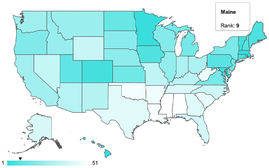Processing Your Payment
Please do not leave this page until complete. This can take a few moments.
- News
-
Editions
-
- Lists
-
Viewpoints
-
Our Events
-
Event Info
- Women's Leadership Forum 2025
- On the Road with Mainebiz in Bethel
- Health Care Forum 2025
- On The Road with Mainebiz in Greenville
- On The Road with Mainebiz in Waterville
- Small Business Forum 2025
- Outstanding Women in Business Reception 2025
- On The Road with Mainebiz in Bath
- 60 Ideas in 60 Minutes Portland 2025
- 40 Under 40 Awards Reception 2025
- On The Road with Mainebiz in Lewiston / Auburn
- 60 Ideas in 60 Minutes Bangor 2025
Award Honorees
- 2025 Business Leaders of the Year
- 2024 Women to Watch Honorees
- 2024 Business Leaders of the Year
- 2023 NextUp: 40 Under 40 Honorees
- 2023 Women to Watch Honorees
- 2023 Business Leaders of the Year
- 2022 NextUp: 40 Under 40 Honorees
- 2022 Women to Watch Honorees
- 2022 Business Leaders of the Year
-
-
Calendar
-
Biz Marketplace
- News
- Editions
- Lists
- Viewpoints
-
Our Events
Event Info
- View all Events
- Women's Leadership Forum 2025
- On the Road with Mainebiz in Bethel
- Health Care Forum 2025
- On The Road with Mainebiz in Greenville
- On The Road with Mainebiz in Waterville
- + More
Award Honorees
- 2025 Business Leaders of the Year
- 2024 Women to Watch Honorees
- 2024 Business Leaders of the Year
- 2023 NextUp: 40 Under 40 Honorees
- 2023 Women to Watch Honorees
- 2023 Business Leaders of the Year
- + More
- 2022 NextUp: 40 Under 40 Honorees
- 2022 Women to Watch Honorees
- 2022 Business Leaders of the Year
- Nomination Forms
- Calendar
- Biz Marketplace
Lawsuit seeks to prevent LePage from blocking millions in job-training funds
 Courtesy / Coastal Counties Workforce Inc.
Michael Bourret, left, is executive director of Coastal Counties Workforce Inc., and Antoinette Mancusi is its deputy director. The nonprofit based in Brunswick has filed a federal lawsuit against Gov. Paul LePage and Labor Commissioner John Butera for refusing to release $8 million in federal funds allocated for workforce development and training services in 2017.
Courtesy / Coastal Counties Workforce Inc.
Michael Bourret, left, is executive director of Coastal Counties Workforce Inc., and Antoinette Mancusi is its deputy director. The nonprofit based in Brunswick has filed a federal lawsuit against Gov. Paul LePage and Labor Commissioner John Butera for refusing to release $8 million in federal funds allocated for workforce development and training services in 2017.
Coastal Counties Workforce Inc., a nonprofit based in Brunswick that oversees workforce development programs such as career centers for six coastal counties in Maine, has filed a federal lawsuit against Gov. Paul LePage and Labor Commissioner John Butera for refusing to release $8 million in federal funds allocated for workforce development and training services in 2017.
The lawsuit also seeks to prevent LePage and Butera from cutting off already allocated 2016 funds.
At issue are $8 million in annual funds provided by the U.S. Department of Labor under the Workforce Innovation and Opportunity Act. Without those funds, Coastal Counties Workforce and Maine’s other regional workforce groups will be forced to cease operation by Nov. 30, leaving thousands of Maine citizens without training and workforce development services, according to a news release from the Maine Legislature’s House Democratic Office.
CCWI, one of three workforce development boards in Maine, serves the counties of Cumberland, Knox, Lincoln, Sagadahoc, Waldo and York. Northwestern Workforce Development Board serves Aroostook, Hancock, Penobscot, Piscataquis and Washington counties; Central/Western Maine Workforce Investment Board serves Androscoggin, Franklin, Kennebec, Oxford and Somerset counties.
LePage's dispute with the feds
In a Sept. 7 letter to Secretary of Labor R. Alexander Acosta, LePage expressed disappointment that the federal Department of Labor had rejected his proposal to consolidate the state’s local workforce investment areas, each with its own business-led local Workforce Development Board, into one statewide system.
“The current system is fraught with redundancies and waste, and I have tried for nearly seven years to reduce overhead and administrative costs so that more funds can go directly to the constituents we are trying to put back to work,” LePage wrote. “I will not continue to participate in a system that wastes money.”
LePage told Acosta that his letter served notice to the federal DOL that Maine would no longer participate in the Workforce Innovation and Opportunity Act’s Title 1B program. He requested “that no more of these funds be sent to the Maine Department of Labor.”
In a Sept. 20 response, Acosta told LePage that some American Job Centers in Maine could close as the result of his actions. He offered two possible avenues for LePage to pursue his goal of “additional flexibility,” noting the while the Trump administration “supports flexibility for governors” it could not unilaterally agree to his request to consolidate the state’s boards into one statewide system.
To do so, Acosta wrote, would either require congressional action or it would require, under federal law, that the “state must consult with state and local boards and provide the opportunity for public comment.” Acosta added: “[P]roposed workforce areas must align with local labor and economic markets have appropriate federal and non-federal resources to adequately deliver WIOA services.”
Lawmaker urges LePage to reconsider
In a news release, Rep. Ryan Fecteau, D-Biddeford, House chairman of the Legislature’s Labor, Commerce, Research and Economic Development Committee, issued the following statement:
“The best pathway out of poverty is a good paying job. The federal funds at stake are specifically devoted to ensuring access to robust and relevant training programs that result in lifelong skills and credentials matched to in-demand jobs — exactly what Mainers and employers need. The decision to forfeit these dollars is reckless and harmful to Maine’s people and Maine's economy. I support Coastal Counties Workforce Inc.’s decision to pursue these funds via legal action and I urge Gov. LePage and his administration to reconsider their actions.”
The Bangor Daily News reported that in 2016, Coastal Counties helped 564 workers obtain employment at an average annual wage of $29,456, according to the lawsuit and currently has 908 workers enrolled in intensive services or training.














Comments